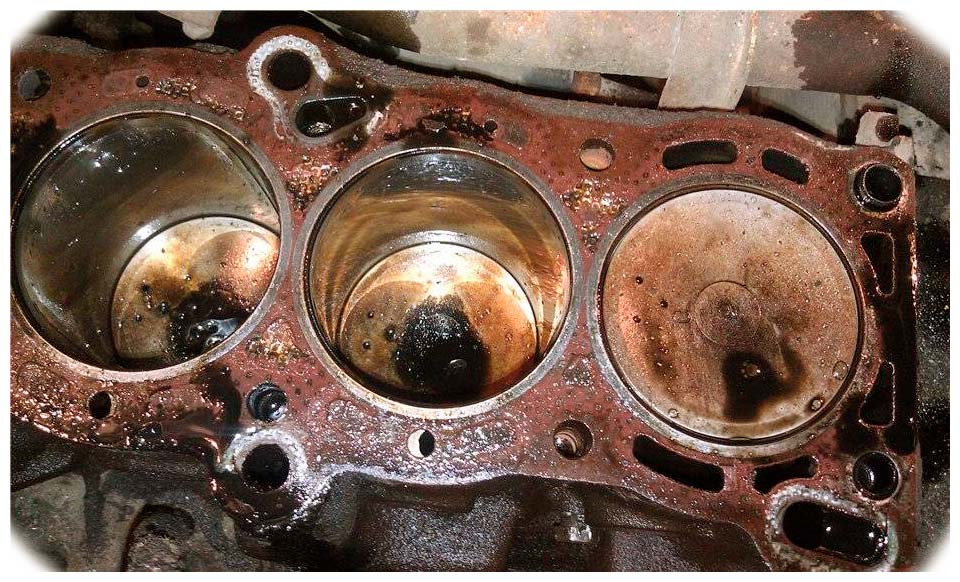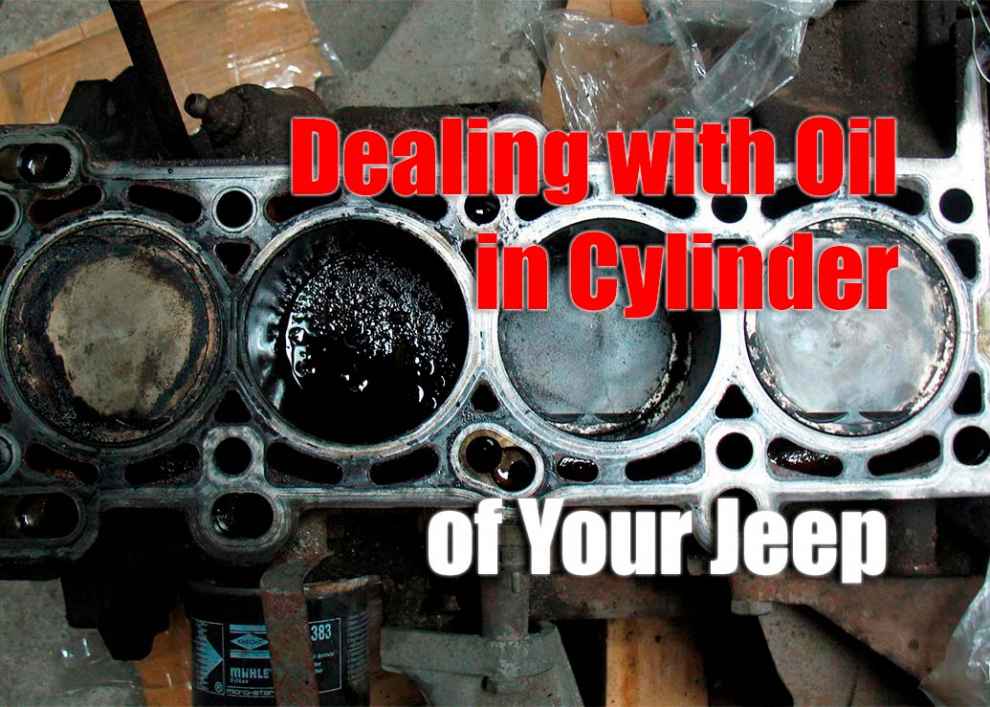Oil is essential for the proper functioning of your Jeep’s engine, but it can also be a source of major problems. If oil is found in the cylinder of your Jeep, you need to take immediate action to prevent further damage from occurring and repair it quickly and correctly. In this article, we’ll discuss what to do when oil is found in the cylinder of your Jeep, including how to diagnose and repair any underlying issues.
Causes of Oil in Cylinder
Finding oil in the cylinder of an engine can be a concerning issue and may indicate various underlying problems. Several potential causes can contribute to oil entering the cylinder. One possibility is worn or damaged piston rings, which can allow oil to bypass and enter the combustion chamber. Another common cause is a faulty valve seal or guide that fails to prevent oil from seeping into the cylinder. Additionally, a malfunctioning PCV (Positive Crankcase Ventilation) system can cause excessive oil vapor to accumulate in the intake manifold and eventually reach the cylinder. Issues with the cylinder head gasket, such as a breach or failure, can also lead to oil leakage. Furthermore, excessive oil pressure, typically resulting from a faulty oil pump or a clogged oil passage, can force oil into the cylinder. Identifying the specific cause of oil in the cylinder is crucial to address the underlying problem and prevent further damage to the engine.
Diagnosing Oil in Cylinder

Repairing and Replacing Parts
Once you have diagnosed and identified the underlying cause of oil entering the cylinder, you can begin repairing and replacing any necessary components. If piston rings are worn, they may need to be replaced or fitted with oversized replacement rings to prevent further leakage of oil into the cylinder. Similarly, if a valve seal or guide is found to be faulty, these should be replaced with new ones that are specifically designed for your Jeep’s engine. The PCV system should also be thoroughly cleaned and inspected for any blockages that could lead to excessive oil vapor leaking into the intake manifold. Additionally, any issues with gaskets or seals must also be addressed as soon as possible to ensure an effective fix for preventing further leakage of oil into the cylinders.
Preventing Further Damage
In addition to addressing underlying issues such as worn piston rings and faulty valve guides causing oil leakage into cylinders, it’s also important to take steps to prevent further damage from occurring. If you notice that oil entering the cylinder is causing a decrease in engine performance or power, then you should immediately stop driving your Jeep and seek professional help to diagnose and fix the underlying issue. Additionally, make sure to check your oil levels frequently and top off as necessary to ensure proper lubrication of components. To further maintain the efficiency of your vehicle, also consider looking into the best oil for Jeep, which can greatly influence the performance and longevity of your engine.
Safety Concerns for Working with Oiled Engines
When working with engines containing oil, you must practice safety measures such as wearing protective gloves and goggles when handling any components of the engine. Additionally, make sure that any exposed parts are kept clean to avoid creating sparks that could ignite an explosion due to an accumulation of gas or vaporized oil particles in a confined space within the engine block. Furthermore, always use tools specifically designed for automotive repair work on vehicles for proper fitting and sealing of components after installation.
Conclusion
Oil is essential for the proper functioning of your Jeep’s engine but can also cause major damage when found in the cylinder. By understanding the common causes and taking steps to diagnose and repair any underlying issues, you can ensure that your Jeep remains in good condition and runs smoothly. Additionally, it is important to take safety measures when working with oiled engines to avoid any potential risks or hazards that could arise due to a buildup of gas or vaporized oil particles.

Add Comment